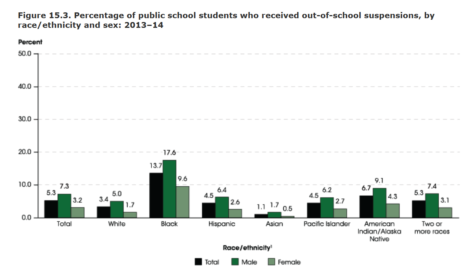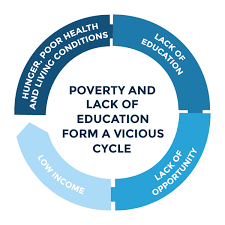Editorial: Schools have to do better for Black Students
March 24, 2023
It is an undeniable fact that education plays an important role in a child’s life- it is important to their social, intellectual, and emotional development, and their benefits are commonly known. According to Penn Foster Career School, getting a high school diploma will help you earn a high income among many other things.
However, the US educational system has a big problem right now. Students of certain races are expelled and forced out of their high school education at a much higher rate than their peers. This statistic can be hard to comprehend. How is this happening? Isn’t the schooling system fair and equitable now?

Unfortunately the public education system is still lacking in its equitability. Its shortcomings can be seen in many statistics. According to The Brookings Institution, Black students are expelled at a higher rate than their peers, consistently score lower, and enroll less often in advanced classes. We need to get rid of this difference in schools. To do that, there is one thing that we must address.
One glaring problem is the unequal distribution of funding.
According to the nonprofit Children First, a public school gets its funding from two main sources: the state’s funds, and local property taxes. Every public school receives around the same amount of funds from the state, however the funds from local property taxes are, as the name implies, local. Schools in low income districts will pay a low amount in property taxes, and will be able to provide less resources for their students. This happens everywhere, according to PBS News affiliate WHYY. This is the reason public high schools vary so much in resources across the nation.
This means that it is very likely that the quality of education a student receives will be dependent on that family’s income, and according to the Federal Reserve Bank of St. Louis, Black families are also, on average, less wealthy due to modern day racism and historical factors. A relation like this is rather depressing, as a higher quality education is exactly what these groups need to prosper financially. Another relation, these lower income districts also tend to consist mainly of the same race due to various factors, according to the Brookings Institution.
Not only this, but schools serve as an extension of any community, so by funding these schools less, you are harming the community as well. In a school with inadequate funding, students receive out-of-date textbooks, score lower on standardized tests, and see less opportunities for growth as a student as the arts, sports, and clubs are cut, according to Parents for Public Schools.

This creates a cycle of unfulfillment. A child grows up with a mediocre education and is not given the tools to build a successful career, and then they go on to have children that go through the same thing as a mediocre education is all they can afford. This is a vicious cycle even for the students that make it to higher education, in which the effects are only worsened.
There are also various other factors that we must work towards lessening to ensure that everyone in the United States receives a quality education, such as addressing implicit biases in teachers, supporting students more outside of school, and validating the struggles these students face instead of chalking up their difference in performance to their “laziness.”
For more information on this matter, check out these resources from the Brookings Institution and the Economic Policy Institute: Unequal Oppurtunity, Modern Day Segregation , and Social Mobility.








